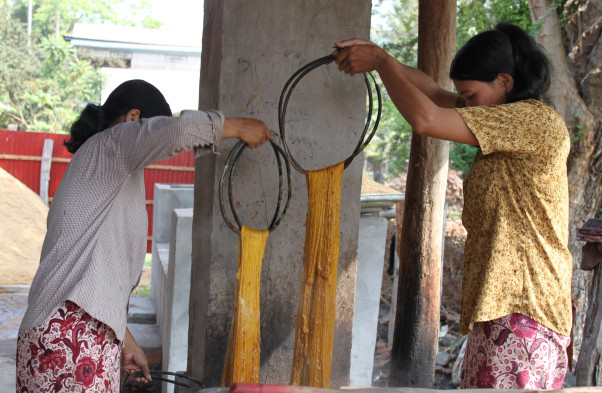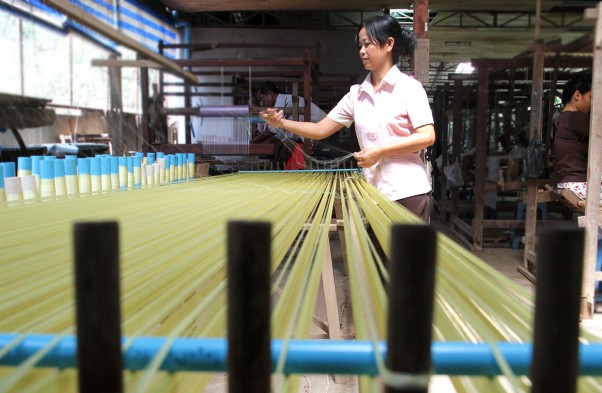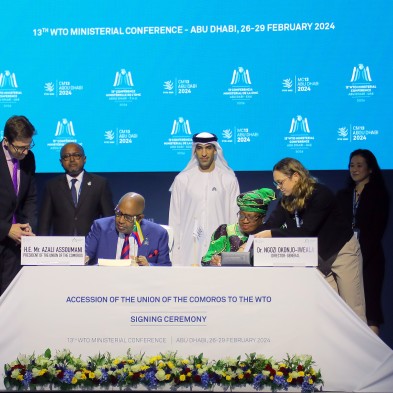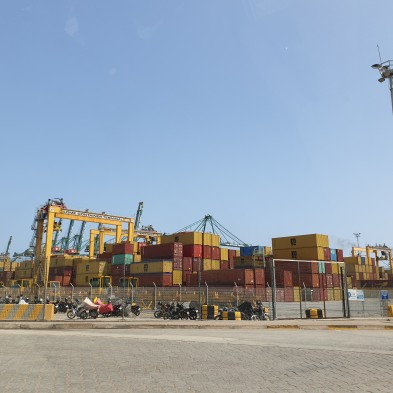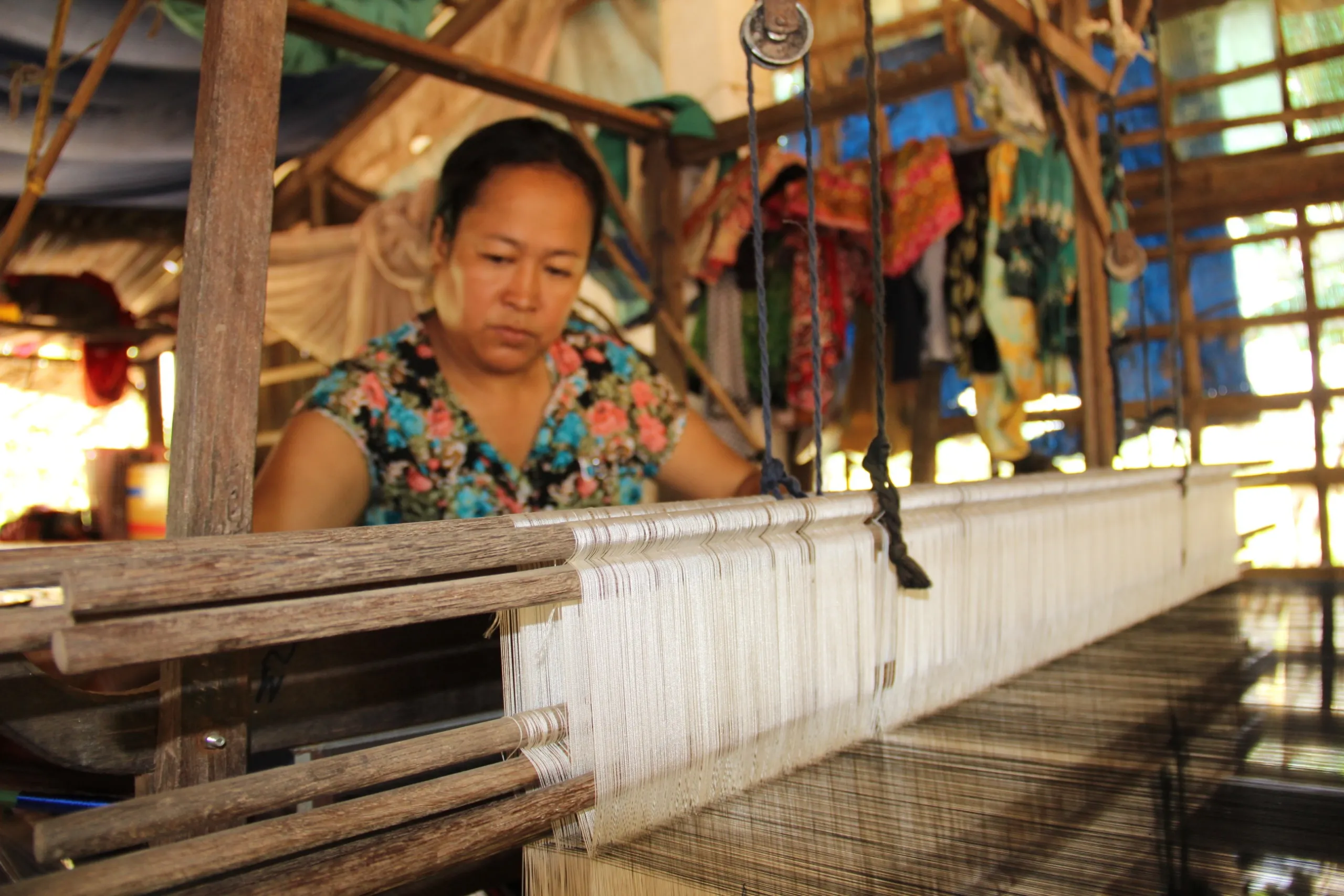
EIF is supporting Cambodia to build its capacity to formulate, implement, manage and monitor a pro-poor trade policy. Cambodia has developed trade roadmaps that serve as the country's trade strategy, and which set out prioritized reforms and actions for improving trade performance and promoting diversification and inclusive growth.
The 2014-2018 roadmap identifies 10 priority sectors for development, of which the EIF is currently supporting five: milled rice, high value silk, fisheries, cassava and hospitality.

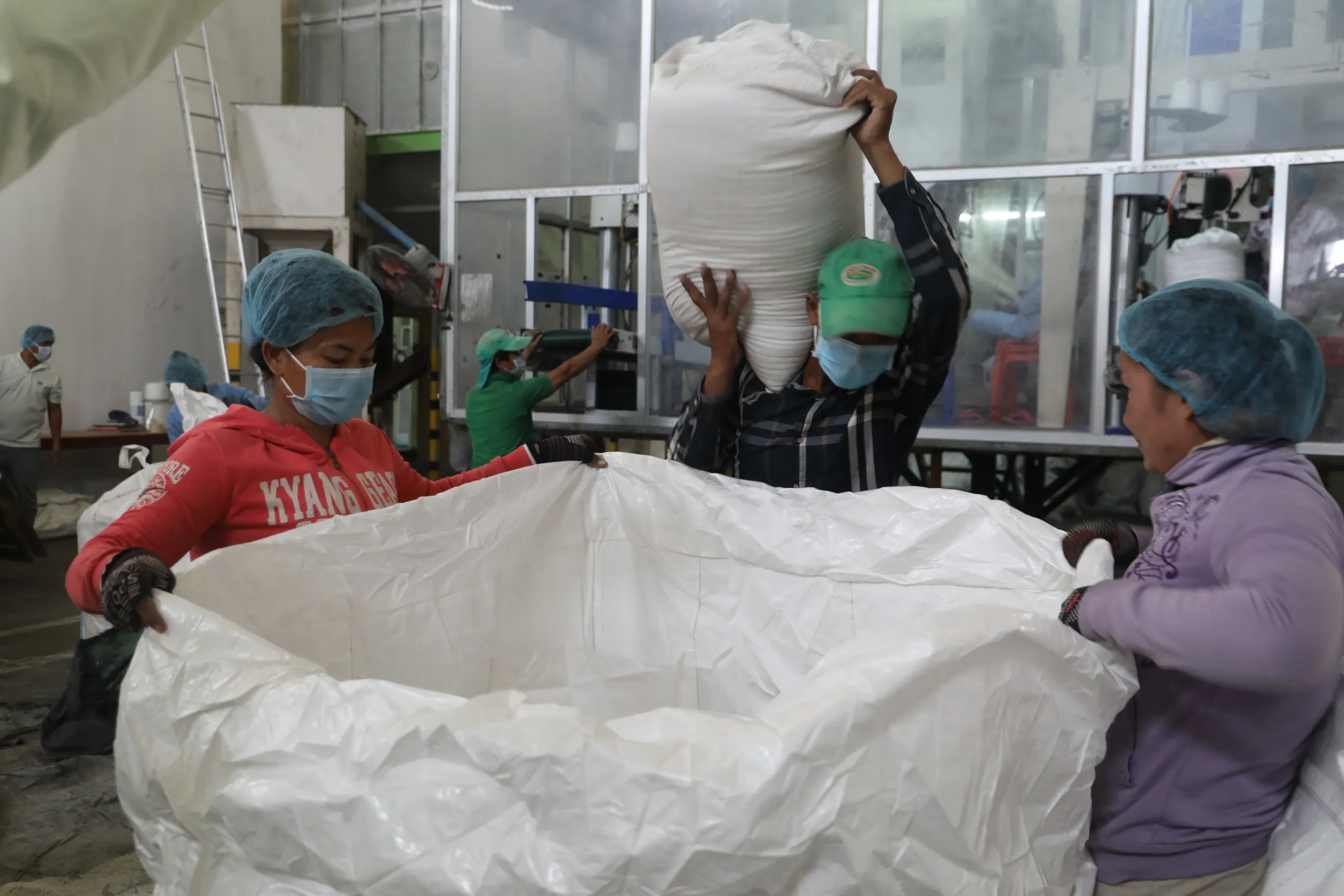
- Cambodia’s rice exports have increased exponentially, with the contribution of support from the Enhanced Integrated Framework (EIF) and partners. The value of rice shipments increased by 200% from 2011 to 2015, and rice export markets grew from 35 to 83 destinations during the same period.
- The EIF-supported National Silk Strategy, as part of the Government’s initiative to strengthen the sector, significantly contributed to increased production and exports of silk products. This raised the average monthly incomes of silk weavers, who are mainly women, from USD 472 in 2012 to USD 909 by the end of the project period in 2014.
- EIF support to Cambodia’s rice and silk sectors, and the Academy of Culinary Arts Cambodia (ACAC), has shown sustainability post the project’s lifespan. This is evident both in terms of diversification of markets and the building of beneficiaries’ economic resilience through job creation.
- There is a growing demand, especially post-COVID-19 restrictions, from international hotel chains and restaurants for graduates from the ACAC supported by the EIF and the Swedish International Development Cooperation Agency. This institution was inaugurated in 2017 in response to the Royal Government of Cambodia’s identification of tourism as a leading source of employment and economic growth.
- The EIF National Implementation Unit (NIU)’s capacity has grown through "learning by doing". By 2023 it was managing an International Fund for Agricultural Development project worth USD 63 million, among other projects, up from a total of USD 1.5 million worth of support when it first became operational.
EIF is working to enhance Cambodia's national capacity to formulate, implement, manage and monitor a pro-poor trade policy that is consistent and supportive of the country's National Strategic Development Plan.
Results:
- The Multi-Donor Trust Fund, also known as Trade Sector Development Program (TDSP), has significantly contributed to trade development. As a result, 28 projects have been approved and implemented by different agencies since March 2009 and the TDSP was extended with extra funding provided by the European Union of US$3.1 million.
- The Cambodia Trade Integration Strategy (CTIS) and trade swap roadmap update 2019-2023 is under development. The new CTIS and roadmap will take stock of progress made in the development of Cambodia's trade sector since 2014 and identify new sector specific strategic priorities and approaches to changing circumstances in Cambodia's trade sector.
EIF worked to promote Cambodia's high-value silk exports, increasing the competitiveness of the silk sector to create jobs, particularly for women, support export diversification, reduce poverty and boost income growth. Cambodian companies benefitted from individual coaching, advisory support and training to develop their products and markets.
Results:
- 100% increase in weavers’ monthly average income from silk weaving from 2012 to 2016.
- 88 new jobs created by 14 project beneficiary companies since 2012.
- 168 weavers newly contracted by the 14 project beneficiary companies since 2012.
- Contacts were established with more than 300 prospective buyers in Europe, the US, Japan, Australia and New Zealand, resulting in more than US$200,000 of new orders concluded or under negotiation. ITC facilitated the establishment of five new sales outlets in Phnom Penh for sales to the tourist market.
- 1 SME registered as Guaranteed Fair Trade Organization by the World Fair Trade Organization.
Rice is the largest employment sector of the Cambodian economy, and EIF worked to increase the competitiveness of Cambodian rice exports, resulting in better earnings for rice millers and farmers in the milled rice supply chain.
Results:
- The project facilitated US$72,497,774 of rice exports over the January-December 2015 period (with fragrant rice accounting for more than half of the facilitated exports). An estimated 268,842 metric tonnes (MT) worth US$146,618,197 was facilitated by the project (in conjunction with the Cambodia Rice Sector Support Project (RSSP).
- Branding strategy for Cambodian rice was endorsed by the CRF. Angkor Malis was selected as the key brand for international markets to present the Cambodian rice brand for export quality fragrant rice.
- 3 new markets procured for Cambodian rice (USA, EU, China).
- 11 Cambodian rice mills became Hazard Analysis Critical Control Point (HACCP) certified and one Occupational Safety and Health (OSH) certified.
- Cambodia won the world’s best rice award three years in a row and the DNA fingerprint of Cambodia fragrant rice varieties was established. The DNA fingerprint of one Cambodian rice variety (Somaly) established as a benchmark against which rice (DNA) purity can be analysed.
EIF worked with the Royal Academy of Culinary Arts (RACA) to improve services in the hospitality sector.
Results:
- Appropriate green technology such as solar water heating and solar electricity generation for the needs of the Academy installed.
- A train the trainer session, for the Academy’s faculty, conducted by representatives of the Swiss Hotel Management School, before the first student intake in March 2017.
- Six short courses for non-professionals were developed and were implemented in December 2016 and continued in the first quarter of 2017. The topics include: Christmas cookies, how to prepare the perfect steak, Valentine dinner, table setting, pasta, basic sushi.
Cambodia is the third biggest exporter of cassava in the world, but has yet to capture more value addition from the sector. EIF worked in market diversification, capacity building to cassava associations and exporters/processors.
Results:
- An up-to-date cassava value chain study was completed and disseminated. The study focuses on the two main components: export of cassava chips and export of processed cassava (starch, flour, ethanol). SPS requirements for key export markets were identified as well as the role of women in value generation.
- Eight cassava associations in the four target provinces of the project were created and registered with the MoC.
- 70 members of eight cassava associations trained in the roles and functions of cassava associations in September 2015, and 90 members trained in contract farming and its application in the cassava sector in June 2015.
- Workshop on trade facilitation and export procedures of cassava-based products organized in Battambang in June 2016 with 85 participants from the private sector (8 cassava associations, 32 private companies) and officials from the sub-national administration.

